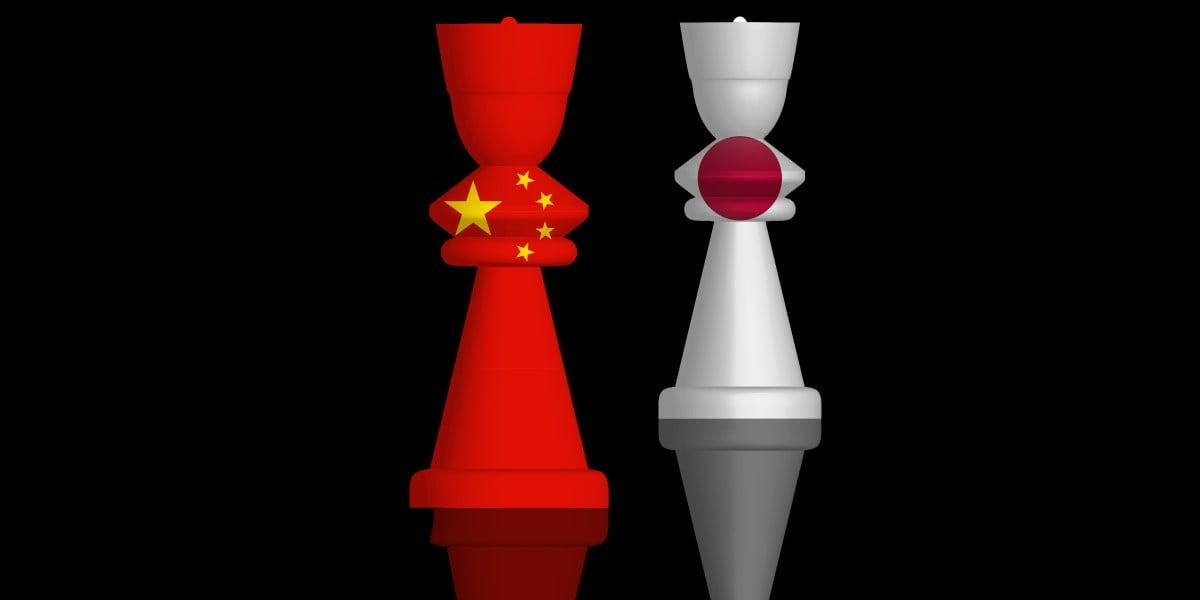Japan May Go Easy On China Over Export Bans On Chipmaking Equipment

The Biden Administration may have convinced the Dutch and Japanese government to present a unified front against China's domestic chip industry, but the extent to which they'll mirror strict US trade restrictions remains to be seen.
On Wednesday Reuters, citing a prominent Japanese lawmaker, reported that sanctions Japan imposes on Chinese chipmakers may not be as strict as those applied by the US or The Netherlands.
"The United States is being strict, but there is a question of whether we have to exactly match that. What we do share is a recognition of the concern over the equipment," Akira Amari, Japan's former Liberal Democratic Party minister said in an interview.
Over the past year, the US has steadily ratcheted up its campaign to restrict the export of 1technology China's semiconductor industry needs to build better products. In October the Biden Administration severed key supply lines for US-made manufacturing equipment and intellectual property.
But, as we've previously reported, US companies are not the only source of equipment used in leading edge semiconductor manufacturing. Netherlands-based ASML is the only producer of extreme ultraviolet (EUV) lithography machines used to produce the most advanced chips.
Cutting off China from US equipment vendors was therefore not enough to achieve the USA's goal of ensuring the Middle Kingdom's semiconductor industry can't build advanced chips that would substitute for other silicon that is not allowed to reach Chinese shores. Nor will banning export of US tech stop China from accessing similar equipment from friendlier nations. So, the US went to work convincing its allies to rally to its cause and cut off the Middle Kingdom.
- China may have to reassess chip strategy in face of US sanctions
- US ban on China chip exports rebounds, causes 2,700 job losses
- Japan, Netherlands reportedly join US in China tech export ban
- US pressures Asian allies to join crusade against Chinese chipmakers
The US successfully convinced the Dutch to block the export of EUV machines to China months ago, but it took considerably longer to convince them to restrict exports of less advanced technology like deep ultra violet (DUV) machines. These machines can be used to produce chips down to about 10nm.
For reference China's largest foundry operator SMIC possesses the ability to produce chips down to 14nm and is rumored to have developed a 7nm process.
But while the US can request and even pressure its allies to enact similar export controls on chipmaking equipment made within their borders, it's ultimately up to their respective governments to decide the extent of those bans. The Netherlands ultimately agreed to restrict the export of DUV equipment to China. However, Japan has yet to detail the extent of its restrictions.
The country's semiconductor industry mostly offers equipment and materials used to make chips, according to the International Trade Administration. Big players from Japan include Nikon and Canon, which - while best known for producing photographic equipment - also produce DUV lithography machines.
If the Japanese government decides not to ban the export of these machines to China, that would represent a considerable hole in the Biden Administration's blockade. On the flipside, cutting off China could cost Japanese companies enormous revenue, hurting investors and staff.
We've already seen this play out in the US. In its most recent quarter LAM Research — one of just a handful of companies that sells equipment used in the production of semiconductors — warned that sanctions on China would reduce its profits by up to $2.5 billion during the 2023 fiscal year. ®
From Chip War To Cloud War: The Next Frontier In Global Tech Competition
The global chip war, characterized by intense competition among nations and corporations for supremacy in semiconductor ... Read more
The High Stakes Of Tech Regulation: Security Risks And Market Dynamics
The influence of tech giants in the global economy continues to grow, raising crucial questions about how to balance sec... Read more
The Tyranny Of Instagram Interiors: Why It's Time To Break Free From Algorithm-Driven Aesthetics
Instagram has become a dominant force in shaping interior design trends, offering a seemingly endless stream of inspirat... Read more
The Data Crunch In AI: Strategies For Sustainability
Exploring solutions to the imminent exhaustion of internet data for AI training.As the artificial intelligence (AI) indu... Read more
Google Abandons Four-Year Effort To Remove Cookies From Chrome Browser
After four years of dedicated effort, Google has decided to abandon its plan to remove third-party cookies from its Chro... Read more
LinkedIn Embraces AI And Gamification To Drive User Engagement And Revenue
In an effort to tackle slowing revenue growth and enhance user engagement, LinkedIn is turning to artificial intelligenc... Read more

